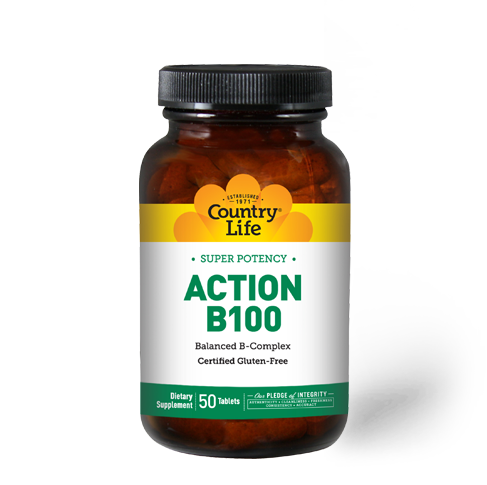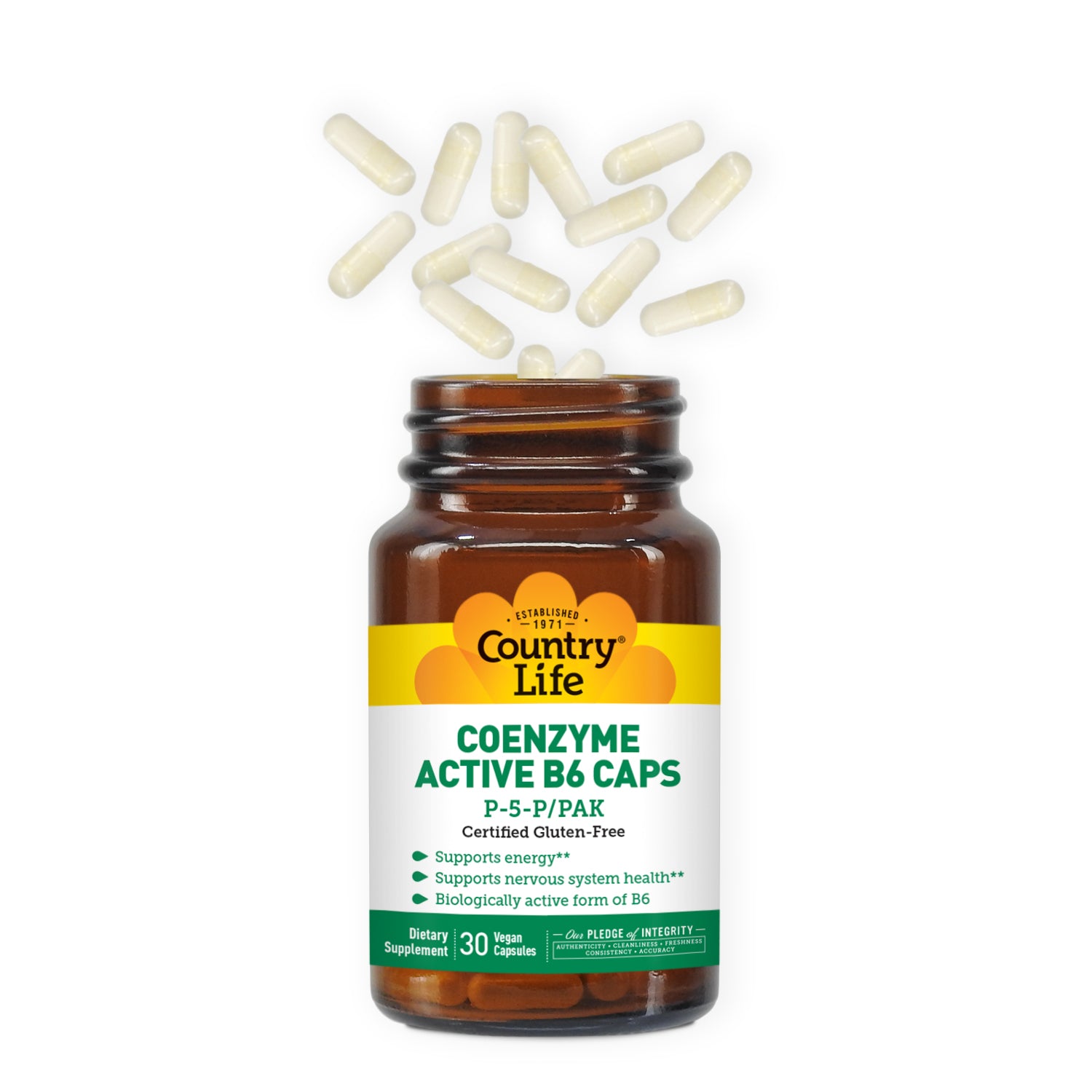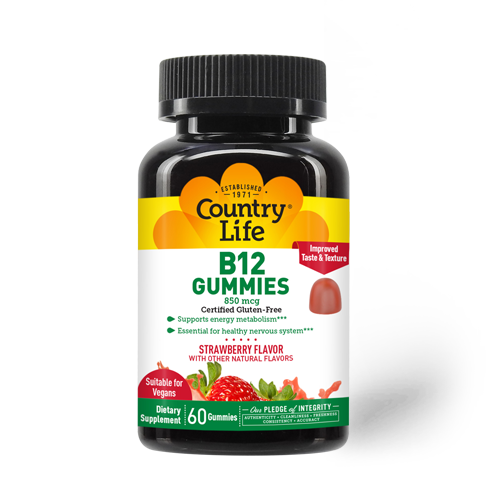For most of us, stress is a regular and inevitable part of our lives.
And some stress, such as the minor day-to-day obstacles that help us grow and keep life interesting, is beneficial.
However, chronic stress, the type that doesn’t let up, has become a pervasive health threat across cultures and countries, causing, triggering, or contributing to all of the world’s most deadly diseases.
This has led to various campaigns aimed at teaching people how to better manage and reduce stress using lifestyle practices such as meditation, prayer, journaling, therapy, and exercise.
What’s less talked about is the role specific nutrients, such as B-vitamins, play in how our bodies handle stress.
Optimizing B-vitamin levels can have profound effects on mental and emotional health, cognitive function, hormonal health, nervous system regulation, and the gut-brain connection, to name but a few.
Think of B vitamins as your body’s nutritional armour, helping protect you from the wear and tear of daily stressors.
How Your Stress Response Works
The sweaty palms and butterflies before a public speaking engagement.
The change in heart rate and perception of time when we receive terrible news
The inability to sleep when we’re worried or feel behind on tasks or life in general.
We’ve all experienced these visceral effects of stress on the body, mind, and emotions.
What causes all this? The body’s built-in stress response. Here’s how this works.
Phase 1: The brain and hypothalamus react
When we encounter stress, be it a life-threatening or everyday stressor, the brain sends a distress signal to the hypothalamus, a small endocrine gland in the lower portion of the brain.
The hypothalamus is often compared to a command center, sending messages to the body via the autonomic nervous system.
The autonomic nervous system has two parts: the sympathetic (rest and digest) and parasympathetic (fight or flight). It controls involuntary bodily functions, such as breathing, heartbeat, etc.
The hypothalamus sends a signal via the autonomic nervous system to the adrenal glands, which release adrenaline (also known as epinephrine) in response.
Adrenaline causes fight-or-flight symptoms, such as elevated heart rate, sweaty palms, a burst of energy, rapid breathing, and sharper senses.
This is all necessary to help us fight or flee from dangerous situations, and phase one happens totally unconsciously, which is why people will automatically move out of the way of a speeding car without thinking.
That’s the power of the autonomic nervous system.
Phase 2: The HPA Axis kicks in
After the initial stress response phase, the hypothalamus activates the HPA (hypothalamic pituitary adrenal) axis.
The HPA axis will create more stress hormones, such as cortisol, to keep the body alive and alert until the stress or danger passes.
Normally, this process would subside once the stress is gone.
However, the body may continue producing these stress hormones in response to non-life-threatening stressors, such as pressure at work, doom scrolling, or a fight with a spouse or partner.
These stress hormones, which are beneficial in the short term, become toxic in the long term, creating a cascade of hormonal imbalances that can lead to chronic stress, blood sugar imbalance, fatigue, mental health issues, nervous system deregulation, gut health issues, and various endocrine imbalances.
Fortunately, we can optimize our stress response to prevent this using stress management techniques, regular exercise, sleep, and nutrition, like B vitamins.
The Role of B-Vitamins in Stress Management
The research is clear: B vitamins play a pivotal role in stress management through their effects on the nervous system, adrenals, brain, gut, hormones, energy production, and neurotransmitters.
There are 8 B vitamins, also known as B complex. Here’s how each plays a role in stress response and resilience.
1. Vitamin B1 (Thiamine)
Supports healthy metabolic function, energy metabolism, cell health, and nervous system function.
How it relates to stress: Proper energy and nervous system function are directly related to stress response.
2. Vitamin B2 (Riboflavin)
This vitamin is essential for energy metabolism, amino acid conversion, maintaining normal homocysteine levels in the blood, adrenal function, and reducing oxidative stress.
How it relates to stress: Normal adrenal function, amino acid conversion, and energy are all essential to a healthy stress response. Vitamin B2 also helps reduce oxidative stress, which is worsened by chronic stress or HPA-Axis dysfunction.
3. Vitamin B3 (Niacin)
Niacin is critical for energy production, central nervous system health, cognitive protection, and cardiovascular health.
It’s also involved in producing serotonin, a neurotransmitter that controls mood, sleep, and more.
How it relates to stress: A lack of niacin may interfere with serotonin production, resulting in mood issues, depression, or anxiety. It’s also essential for various aspects of cognitive health and nervous system function.
4. Vitamin B5 (Pantothenic Acid)
Best known for its hair, skin, and nail benefits, B5 is also known as the anti-stress vitamin and is critical for normal adrenal function and stress hormone production.
It’s also vital for metabolism, gut health, the gut-brain axis, and healthy cholesterol.
How it relates to stress: B5 supports normal production of stress hormones and the gut-brain axis via its effects on peristalsis and the gut microbiome.
5. Vitamin B6 (Pyridoxine)
Vitamin B6 is essential for energy, cognitive development and function, protein metabolism, homocysteine homeostasis, neurotransmitter production, immune function, glucose metabolism, the formation of hemoglobin, mood in women, heart health, and more.
How it relates to stress: B6’s impacts on mood, neurotransmitter production, and cognitive health all impact stress response. Its implications on hemoglobin formation and glucose metabolism may also indirectly impact stress resilience if anemia or blood sugar issues affect energy, sleep, and mood.
Higher B6 intake is also associated with better mental health in women.
6. Vitamin B7 (Biotin)
Biotin is vital for energy production, cellular health, neurological function, and healthy hair, skin, and nails.
How it relates to stress: Proper neurological function, as well as energy and cellular health, is critical to a healthy stress response.
7. Vitamin B9 (Folate/Folic Acid)
Folate is critical for energy, cellular function, DNA repair, cardiovascular function, amino acid conversion, blood health, neurotransmitter production, and preventing neural tube defects in babies.
How it relates to stress: Folate’s effects on neurotransmitter production, like serotonin and dopamine, directly affect mood. Its role in energy production and cellular function impacts stress response and resilience.
8. Vitamin B12 (Cobalamin)
Vitamin B12 is one of the most critical B vitamins for nervous system health, mood, cognitive function and memory, HPA axis function, and energy.
How it relates to stress: A lack of B12 leads to various stress-related symptoms, including compromised stress response/resilience, fatigue, nervous system complaints, depression, memory issues, cognitive impairments, anxiety, and sleep disorders, to name a few.
The Best Food Sources of B-Vitamins For Stress
Most B vitamins are abundant in fruits, vegetables, meats, beans, legumes, and whole grains.
Some of the best sources include:
- Vitamin B1: Whole grains, tofu, legumes, green peas, nuts, pork, oysters, brown rice, asparagus
- Vitamin B2: Beef, eggs, tofu, lean meats, oysters, dairy products, Greek yogurt, avocados, green peas, green leafy vegetables, mushrooms
- Vitamin B3: Poultry, beef, fish, peanuts, avocados, brown rice, mushrooms
- Vitamin B5: Avocados, eggs, lentils, sweet potatoes, brown rice, poultry, mushrooms
- Vitamin B6: Bananas, beef, chickpeas, salmon, potatoes, green peas, brown rice, spinach
- Vitamin B7: Egg yolks, nuts, seeds, sweet potatoes
- Vitamin B9: Asparagus, avocado, lentils, tofu, oysters, green peas, edamame, pinto beans, black beans, oranges, spinach
- Vitamin B12: Meats and organ meats, fish, poultry, eggs, oysters, dairy, fortified cereals, nutritional yeast, Greek yogurt
A diverse, nutritious diet is your best source of B vitamins.
However, some people, especially those on restrictive diets, vegans, vegetarians, people taking certain medications, people with genetic variations (like MTHFR), those with deficiencies or insufficiencies, may benefit from B vitamin supplements, such as B complex.
B complex supplements can also help promote energy during times of stress.
How to Choose the Best B-Vitamin Supplements
The best B vitamin supplements for you depend on your diet, state of health, stress levels, nutrient status, and genetic makeup.
For example, if you’re an otherwise healthy person looking to fill in nutrient gaps and increase energy, a standard B complex supplement, like Country Life’s Coenzyme B-Complex Caps, may be perfect.
If, on the other hand, you are deficient in B12 and have a genetic variation, such as MTHFR, you’d want to go with a higher dose of coenzymated or methylated B12 supplements, such as Country Life’s Methyl B12 Lozenges.
Regardless, the best vitamin supplements are free from synthetic colors, flavors, and sweeteners, made using evidence-based formulas for optimal absorbability, tested for purity and contaminants, and manufactured in an NSF-certified cGMP facility, like Country Life.
Our supplements are also NSF-certified gluten-free, making them ideal for those with Celiac, gluten intolerance or sensitivity, and those with autoimmune conditions.
Talk to your doctor or healthcare practitioner for individual recommendations.
Related reading: What Is a Coenzymated Vitamin? Exploring Coenzymated B12 Benefits
Support Your Stress Response With Country Life’s B-Vitamin Collection
Since 1971, Country Life® has set the standard for clean, authentic, gluten-free, evidence-based supplements such as single B-vitamins and B-complexes.
Some of our most popular B vitamins include:
- Coenzyme B-Complex Caps
- Coenzyme B-Complex Advanced
- Cellular B Recharge
- Methyl B12 Lozenges
- Methylfolate Chewable Tablets
- High Potency Biotin
- Vitamin B6
- B12 Gummies
Shop all Country Life’s B-Vitamin supplements.
Other supplements for stress include:
All our products are manufactured in NSF-certified organic and certified gluten-free facilities, purity-tested for heavy metals and other common contaminants.
References:
- “A Systematic Review and Meta-Analysis of B Vitamin Supplementation on Depressive Symptoms, Anxiety, and Stress: Effects on Healthy and 'At-Risk' Individuals”. Nutrients.
- “Potential mental and physical benefits of supplementation with a high-dose, B-complex multivitamin/mineral supplement: What is the evidence?” Nutr Hosp.
- “Reducing occupational stress with a B-vitamin focused intervention: a randomized clinical trial: study protocol”. Nutr J.
- “Understanding the stress response”. Harvard Health Publishing.
- “The impact of stress on body function: A review”. EXCLI Journal, 16, 1057.
- “Functional Roles of B-Vitamins in the Gut and Gut Microbiome”. Mol Nutr Food Res.
- “Thiamin Fact Sheet for Health Professionals”. NIH Office of Dietary Supplements.
- “Riboflavin Fact Sheet for Health Professionals”. NIH Office of Dietary Supplements.
- “Niacin Fact Sheet for Health Professionals”. NIH Office of Dietary Supplements.
- “Niacin in the Central Nervous System: An Update of Biological Aspects and Clinical Applications”. International Journal of Molecular Sciences.
- “Vitamin B5 (Pantothenic Acid)” [Updated 2024 Feb 29]. In: StatPearls [Internet]. Treasure Island (FL): StatPearls Publishing; 2025 Jan.
- “Vitamin B6 Fact Sheet for Health Professionals”. NIH Office of Dietary Supplements.
- “Higher vitamin B6 intake is associated with lower depression and anxiety risk in women but not in men: A large cross-sectional study”. Int J Vitam Nutr Res.
- “Biotin Fact Sheet for Health Professionals”. NIH Office of Dietary Supplements.
- “Folate Fact Sheet for Health Professionals”. NIH Office of Dietary Supplements.
- “Vitamin B12 Fact Sheet for Health Professionals”. NIH Office of Dietary Supplements.
- “Comparative Bioavailability and Utilization of Particular Forms of B12 Supplements With Potential to Mitigate B12-related Genetic Polymorphisms”. Integrative Medicine: A Clinician's Journal.















Share:
Do Vitamin D and Omega-3 Have Anti-Aging Benefits?
5 Nutrient Deficiencies You Might Not Know You Have